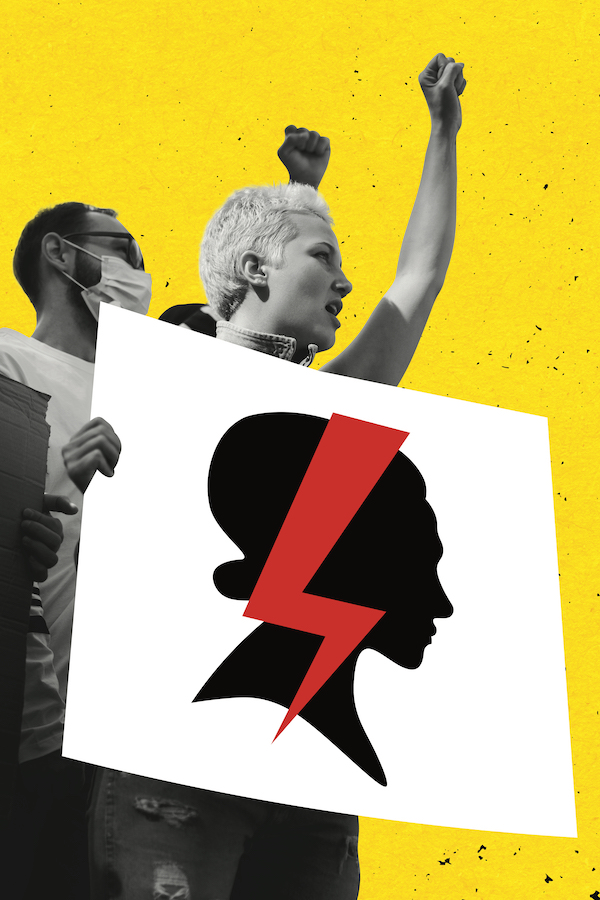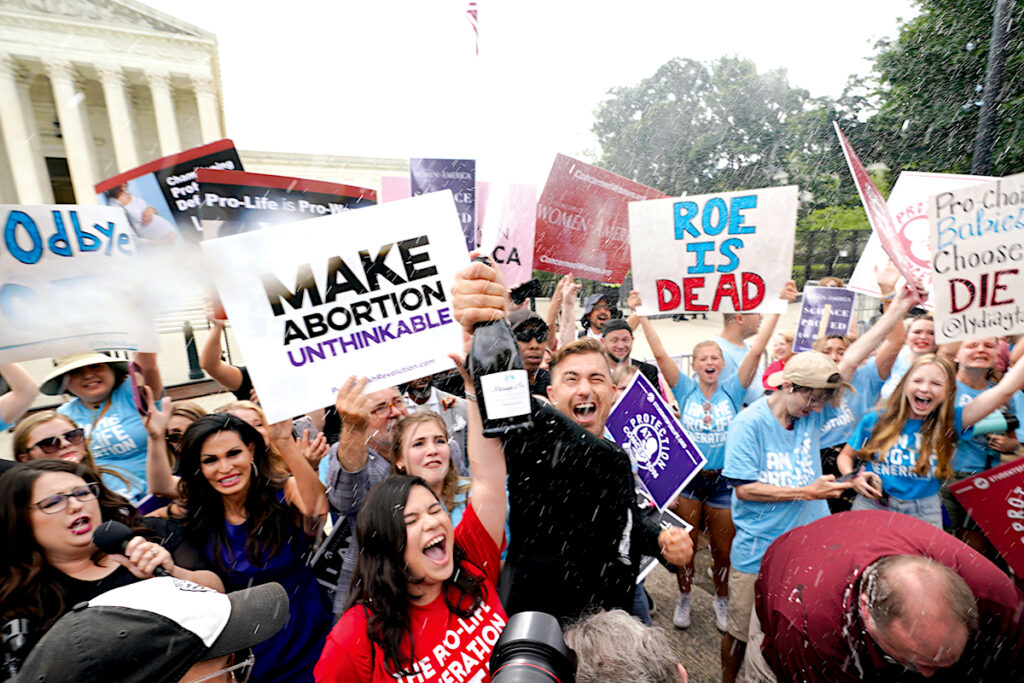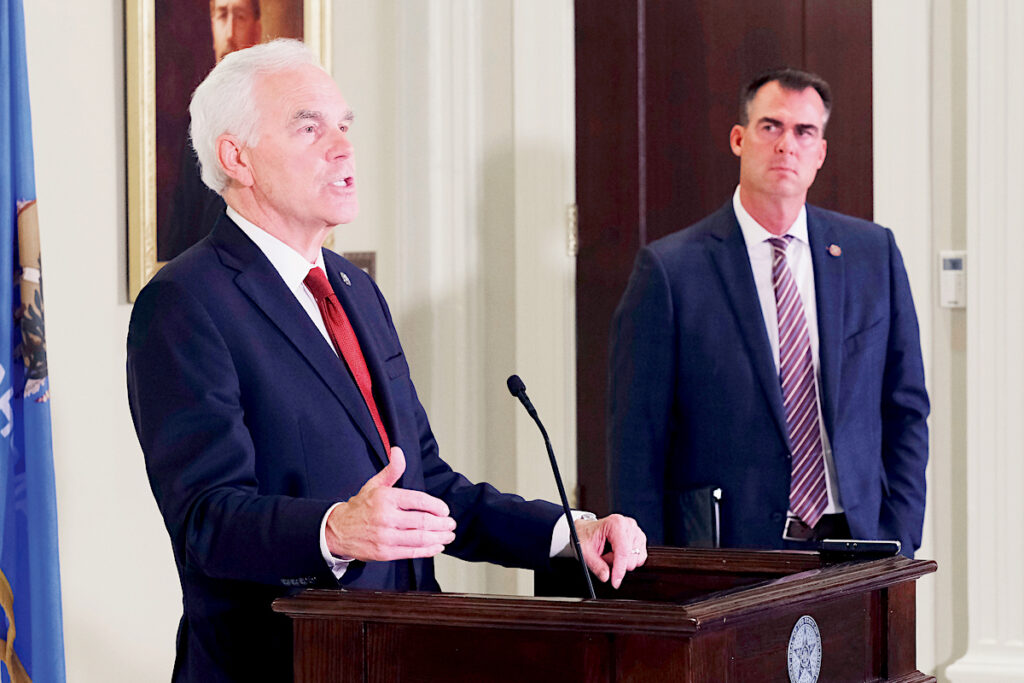
TULSA – The 26 states that ban abortions have avoided prosecuting women and instead targeted providers. But with the surge in cross-state telemedicine and international providers of direct access to abortion pills, some lawmakers want to go a step further and punish the women aborting fetuses. The coalition of Oklahoma GOP senators and state representatives have written to Attorney General John O’Connor about the issue. They appear to be trying to avoid the political fall-out of the draconian anti-abortion measures by having O’Connor declare “self-induced” (medicinal) abortions a crime.
Several states, including Oklahoma, launched an all-out assault on abortions of all types months before the U.S. Supreme Court – in its Dobbs v. Jackson Women’s Health Organization decision – overturned a federal right to abortion in June.
In previous years, the Centers for Disease Control and Prevention (CDC) reported 750,000 abortions occurred annually in the U.S., with about 5,000 in Oklahoma. Thirteen states had enacted “trigger laws” that automatically banned abortions when the Supreme Court overturned its 1973 Roe v. Wade decision. Ultimately, 26 states enacted abortion bans of some sort. Before the Supreme Court decision, these states outraced each other to see how restrictive they could be. For example, the Mississippi case before the Supreme Court rolled back abortions within 15 weeks of pregnancy. But Oklahoma passed a law in April criminalizing doctors performing abortions approximately six weeks from conception and imposing penalties of up to 10 years in prison.

Oklahoma imposed civil penalties
In May, Oklahoma enacted a law authorizing “private civil actions” to anyone who “knowingly engages in conduct that aids or abets the performance or inducement of an abortion.”
The legislation, House Bill 4327, provided statutory civil penalties of not less than $10,000 for each abortion. This immediately closed the doors of all of Oklahoma’s four providers of abortion services.
A former member of the board of directors of Planned Parenthood Great Plains and Tulsa resident told The Oklahoma Eagle they had no choice but to stop performing abortions at their facilities.
He added that “this kind of language could subject the doorman to liability.”
He asked not to be identified by name.
Even the Tulsa organization, Your Abortion Choice, which does not make abortion referrals of any type, has seen changes.
Executive director Joya Fadeley told the Eagle that there has been an increase in calls from women wanting to know if they “could be prosecuted for having an abortion” and inquiring about “abortion pills reversal.”
GOP moves to criminalize women
In a letter to Oklahoma’s Attorney General, eight state GOP lawmakers – four each from the Senate and House – asked O’Connor “to provide clarity on this critical issue.” They were referring to reports of women self-inducing abortions.
The letter reads more like a legal brief urging action against women aborting fetuses than a simple inquiry. It ends by stating that under Oklahoma Statutes, “the willful killing of an unborn human being, even by the mother, should be considered criminal homicide in Oklahoma if committed via a self-induced abortion…”
Oklahoma laws prohibit abortion after conception and provide no exceptions for rape or incest.
“Our office is reviewing the request just like any other we receive,” Rachel Roberts, the communications director for O’Connor, told the Eagle in an interview.
However, she also directed this media outlet’s attention to a previous statement by O’Connor, which read, “None of our laws – civil or criminal – punish the mother in connection with an abortion.”
So, it appears that the Republican legislators will have to soil their hands with this task to criminalize women aborting their fetuses.

Medication abortions and out-of-state providers
A report that the CDC issued in November said that most abortions occurring before the 9th week of pregnancy were performed by taking the pill mifepristone. This was an increase of 22% over 2019.
The Food and Drug Administration allows women to receive the pill by mail and at retail pharmacies.
Attorneys for anti-abortion groups in Texas seek to overturn this FDA decision that was made permanent in December 2021.
States with abortion bans also seek to ban so-called “telehealth” providers who prescribe abortion drugs from states where abortions are legal. Oklahoma has cut off this alternative, unless an abortion seeker is willing to travel out of state to obtain the medication, because the prescribing physician must be in the physical presence of a patient.
But abortion-banning states are having a much more difficult time dealing with the influx of these medications by international providers. In October, the medical journal JAMA reported over a 100% increase in overseas online pill orders. The Society of Family Planning, in its “#WeCount Report,” calculated the change in abortion counts between April and August 2022. In states where abortions were “banned or severely restricted’ abortions declined by about 8,000 per month. But abortions increased by about 7,000 in states where abortions were legal, and those states with the highest increase were closer to the banned or restrictive abortion states.
This report later added, “we were unable to estimate the number of abortions that occurred outside the formal healthcare system, such as via Aid Access or ‘volunteer’ accompaniment networks in Mexico.”
In a Nov. 1, analysis, The New York Times said the “new data suggests that abortion has declined about 2% in the U.S. since the end of Roe, accounting for people who travel across state lines or ordered pills online.”
Disparate impact
But skeptics point out this slight decline is likely unsustainable as legislators in states with abortion bans impose more and more restrictions creating new civil and criminal laws. This certainly appears true for the cadre of Oklahoma Republican legislators, who are asking that the abortion of a fetus by a woman “be considered [as] criminal homicide in Oklahoma.”
The #WeCount Report also notes, “The decline in the numbers of abortions occurred in states with the greatest structural inequalities in terms of maternal morbidity, mortality, and poverty. Thus, the impact of the Dobbs decision (overturning Roe) is not equally distributed.”
The CDC ranks Oklahoma 43rd of the states in prenatal care. In a 10-year Oklahoma State Department of Health Surveillance Study, Tulsa County had the highest abortion rate of the state’s 77 counties and over 20% of the total state abortions.
National infant mortality rates for Black families are twice the white national average. The Tulsa Equality Indicators for 2021 have Tulsa Black families at three times the infant mortality rate of the national white average.
Pre-Roe, the American Obstetricians and Gynecological Association estimated that “before 1973, 1.2 million U.S. women resorted to illegal abortions each year and that unsafe abortions caused 5,000 annual deaths.”
Indeed, the U.S. won’t return to those levels if for no other reason than many states permit abortions. But it is inevitable that unwanted pregnancies carried to term will cause the death of many women and children, disproportionately minorities.









